BMW X3 vs Mercedes GLS – Which model is better for everyday use?
Compare performance, boot capacity, efficiency and price at a glance.
Find out which car is the better choice for you – BMW X3 or Mercedes GLS?
Here’s where it gets real: The technical differences in detail
Costs and Efficiency: Price and efficiency are often the first things buyers look at. Here it becomes clear which model has the long-term edge – whether at the pump, the plug, or in purchase price.
BMW X3 has a clearly advantage in terms of price – it starts at 51300 £, while the Mercedes GLS costs 96100 £. That’s a price difference of around 44863 £.
Fuel consumption also shows a difference: the BMW X3 manages with 2.80 L and is therefore convincingly more efficient than the Mercedes GLS with 7.80 L. The difference is about 5 L per 100 km.
Engine and Performance: Power, torque and acceleration are the classic benchmarks for car enthusiasts – and here, some clear differences start to show.
When it comes to engine power, the Mercedes GLS has a distinct edge – offering 634 HP compared to 398 HP. That’s roughly 236 HP more horsepower.
In acceleration from 0 to 100 km/h, the Mercedes GLS is minimal quicker – completing the sprint in 4.20 s, while the BMW X3 takes 4.60 s. That’s about 0.40 s faster.
In terms of top speed, the Mercedes GLS performs somewhat better – reaching 280 km/h, while the BMW X3 tops out at 250 km/h. The difference is around 30 km/h.
There’s also a difference in torque: the Mercedes GLS pulls distinct stronger with 850 Nm compared to 670 Nm. That’s about 180 Nm difference.
Space and Everyday Use: Beyond pure performance, interior space and usability matter most in daily life. This is where you see which car is more practical and versatile.
Seats: Mercedes GLS offers noticeable more seating capacity – 7 vs 5.
In curb weight, the BMW X3 is clearly perceptible lighter – 1930 kg compared to 2550 kg. The difference is around 620 kg.
In terms of boot space, the BMW X3 offers distinct more room – 570 L compared to 355 L. That’s a difference of about 215 L.
In maximum load capacity, the Mercedes GLS performs evident better – up to 2400 L, which is about 700 L more than the BMW X3.
When it comes to payload, Mercedes GLS slightly takes the win – 695 kg compared to 570 kg. That’s a difference of about 125 kg.
All in all, the BMW X3 shows itself to be leaves the rival little chance and secures the title of DriveDuel Champion.
It impresses with the more balanced overall package and proves to be the more versatile companion for everyday use.
BMW X3
The BMW X3 stands out in the competitive SUV market with its refined blend of performance and luxury. Its interior boasts high-quality materials and a design focused on driver comfort and convenience. With a robust engine lineup, the vehicle offers a balanced driving experience that caters to both urban settings and off-road adventures.
details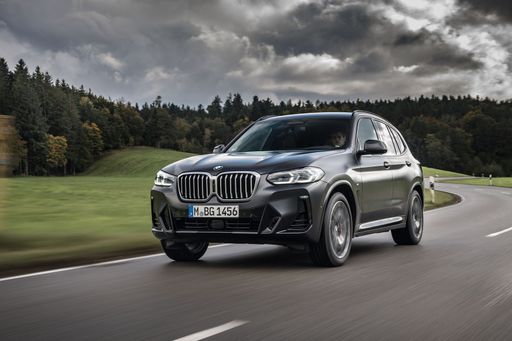 @ press.bmwgroup.com
@ press.bmwgroup.com
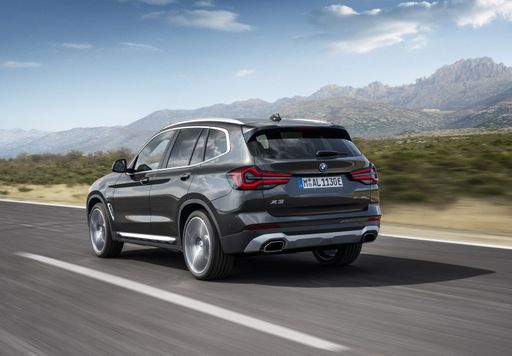 @ press.bmwgroup.com
@ press.bmwgroup.com
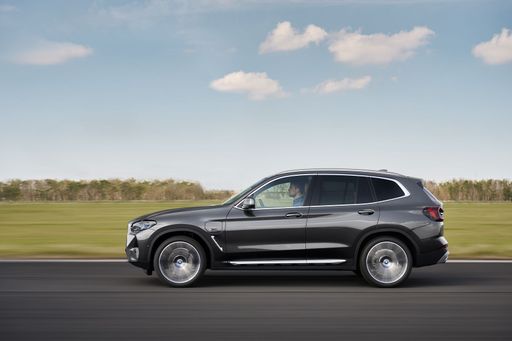 @ press.bmwgroup.com
@ press.bmwgroup.com
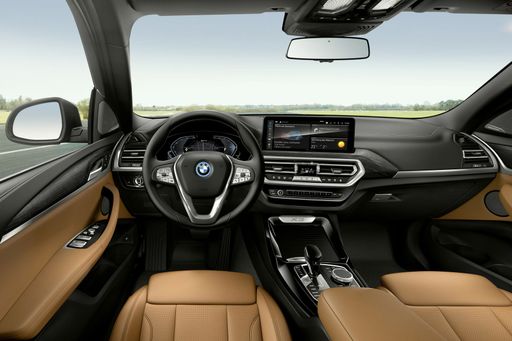 @ press.bmwgroup.com
@ press.bmwgroup.com
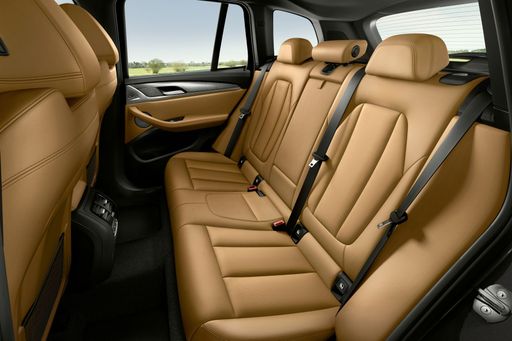 @ press.bmwgroup.com
@ press.bmwgroup.com
Mercedes GLS
The Mercedes-Benz GLS represents the epitome of luxury and spaciousness in the SUV category, offering a blend of refined elegance and advanced technology. With its imposing presence and meticulously crafted interior, it provides both driver and passengers with unparalleled comfort and sophistication. The vehicle's state-of-the-art features and smooth performance make it a standout choice for those seeking both style and functionality in their automotive experience.
details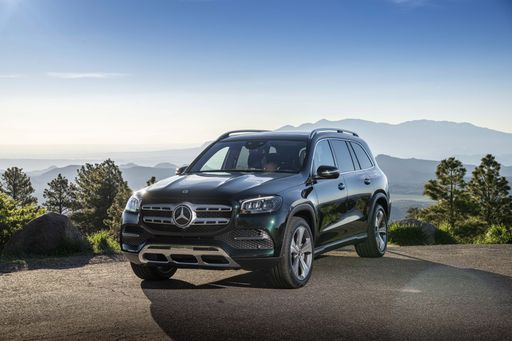 @ group-media.mercedes-benz.com
@ group-media.mercedes-benz.com
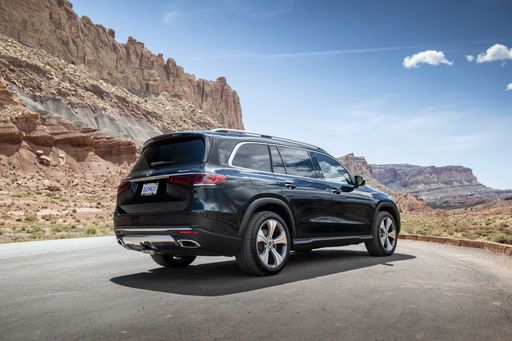 @ group-media.mercedes-benz.com
@ group-media.mercedes-benz.com
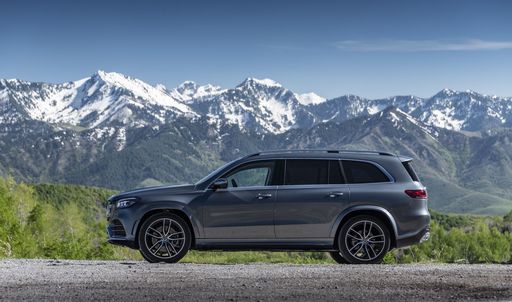 @ group-media.mercedes-benz.com
@ group-media.mercedes-benz.com
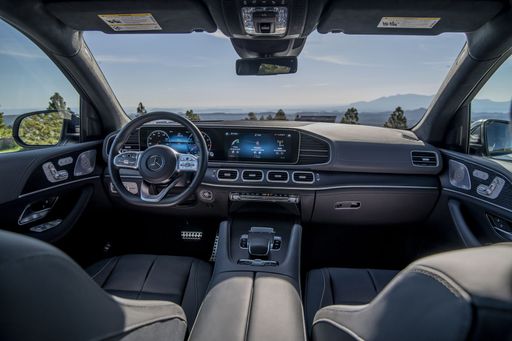 @ group-media.mercedes-benz.com
@ group-media.mercedes-benz.com
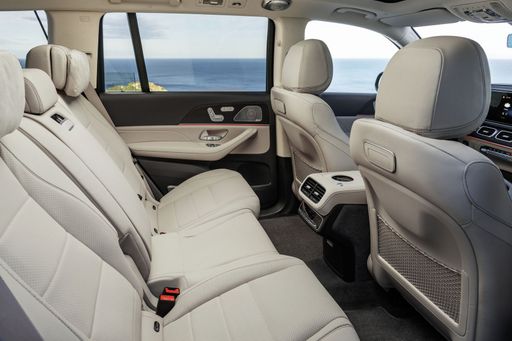 @ group-media.mercedes-benz.com
@ group-media.mercedes-benz.com

|

|
|
|
|
Costs and Consumption |
|
|---|---|
|
Price
51300 - 72400 £
|
Price
96100 - 208500 £
|
|
Consumption L/100km
2.8 - 7.7 L
|
Consumption L/100km
7.8 - 13.7 L
|
|
Consumption kWh/100km
-
|
Consumption kWh/100km
-
|
|
Electric Range
88 km
|
Electric Range
-
|
|
Battery Capacity
19.70 kWh
|
Battery Capacity
-
|
|
co2
64 - 175 g/km
|
co2
204 - 310 g/km
|
|
Fuel tank capacity
50 - 65 L
|
Fuel tank capacity
90 L
|
Dimensions and Body |
|
|---|---|
|
Body Type
SUV
|
Body Type
SUV
|
|
Seats
5
|
Seats
7
|
|
Doors
5
|
Doors
5
|
|
Curb weight
1930 - 2140 kg
|
Curb weight
2550 - 2825 kg
|
|
Trunk capacity
460 - 570 L
|
Trunk capacity
355 L
|
|
Length
4755 mm
|
Length
5208 - 5233 mm
|
|
Width
1920 mm
|
Width
1956 mm
|
|
Height
1660 mm
|
Height
1782 - 1838 mm
|
|
Max trunk capacity
1600 - 1700 L
|
Max trunk capacity
2400 L
|
|
Payload
570 kg
|
Payload
445 - 695 kg
|
Engine and Performance |
|
|---|---|
|
Engine Type
Petrol MHEV, Diesel MHEV, Plugin Hybrid
|
Engine Type
Petrol MHEV, Diesel MHEV
|
|
Transmission
Automatic
|
Transmission
Automatic
|
|
Transmission Detail
Automatic Gearbox
|
Transmission Detail
Automatic Gearbox
|
|
Drive Type
All-Wheel Drive
|
Drive Type
All-Wheel Drive
|
|
Power HP
197 - 398 HP
|
Power HP
333 - 634 HP
|
|
Acceleration 0-100km/h
4.6 - 7.8 s
|
Acceleration 0-100km/h
4.2 - 6.7 s
|
|
Max Speed
215 - 250 km/h
|
Max Speed
238 - 280 km/h
|
|
Torque
330 - 670 Nm
|
Torque
500 - 850 Nm
|
|
Number of Cylinders
4 - 6
|
Number of Cylinders
6 - 8
|
|
Power kW
145 - 293 kW
|
Power kW
245 - 466 kW
|
|
Engine capacity
1995 - 2998 cm3
|
Engine capacity
2989 - 3982 cm3
|
General |
|
|---|---|
|
Model Year
2024 - 2025
|
Model Year
2024 - 2025
|
|
CO2 Efficiency Class
F, E, B
|
CO2 Efficiency Class
G
|
|
Brand
BMW
|
Brand
Mercedes-Benz
|
What drive types are available for the BMW X3?
The BMW X3 is offered with All-Wheel Drive.
The prices and data displayed are estimates based on German list prices and may vary by country. This information is not legally binding.
